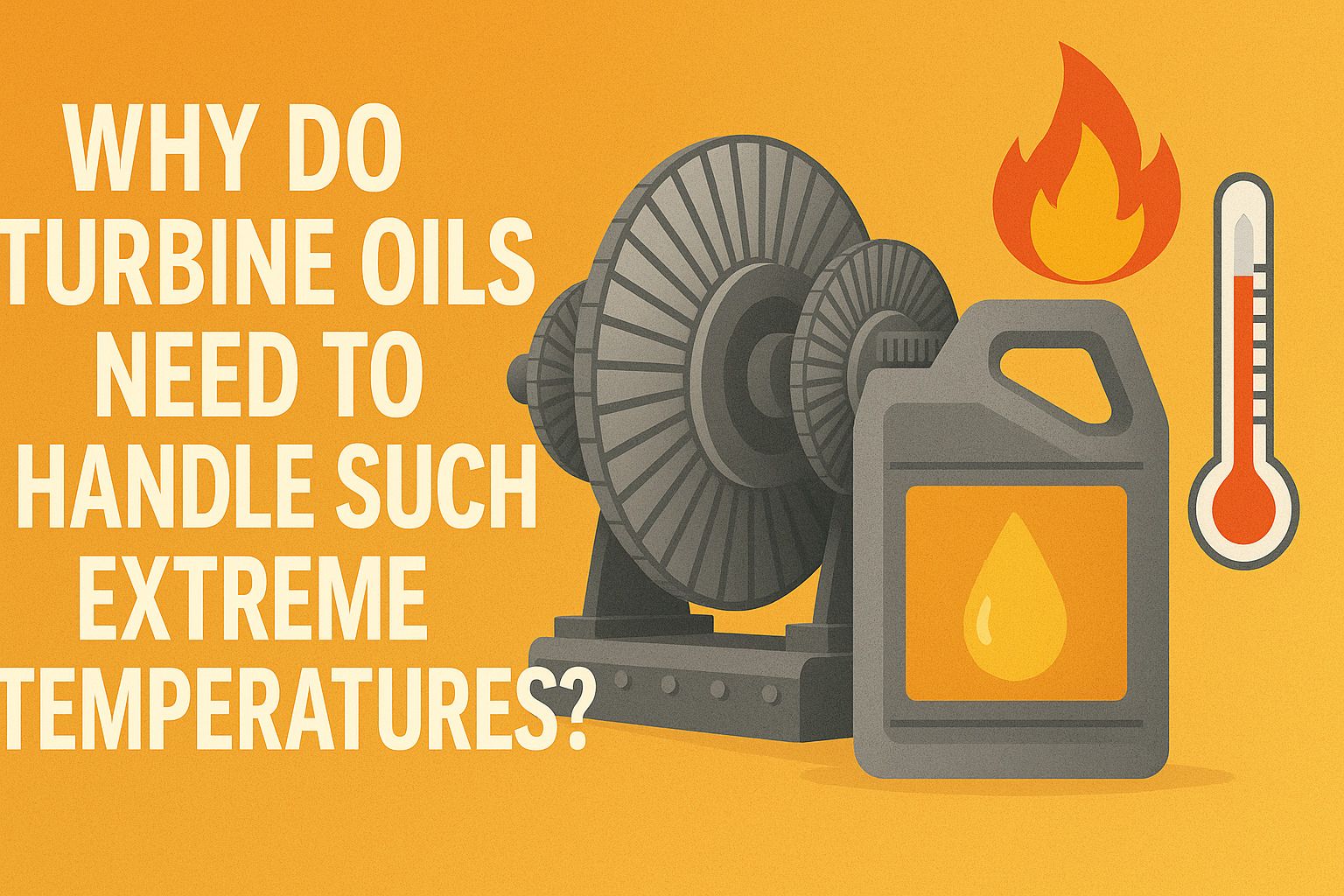When it comes to operating high-performance turbines, whether in aviation, power generation, or industrial applications, turbine engine oil plays a crucial role in ensuring optimal performance and safety. These oils are not your average lubricants—they are engineered to withstand some of the most extreme conditions imaginable. But why do turbine oils need to handle such high temperatures, and what makes them different from standard lubricants?
Let’s explore.
The Demands of Turbine Engines
Turbine engines operate under incredibly demanding conditions. Whether it’s a jet engine soaring through the sky or a gas turbine in a power plant, the internal temperatures can exceed 1,000°F (538°C). These extreme conditions can quickly break down regular lubricants, leading to reduced efficiency, potential damage, or even catastrophic failure.
Turbine engine oils are specifically formulated to:
- Withstand high thermal loads
- Resist oxidation and carbon buildup
- Maintain viscosity across a wide temperature range
- Prevent corrosion and deposit formation
Why High-Temperature Resistance Matters
1. Preventing Oil Breakdown
At high temperatures, oils can oxidize and degrade rapidly. This leads to sludge, varnish, and carbon deposits that can clog narrow oil passages and restrict lubrication. High-quality turbine engine oil is formulated with advanced additives and synthetic base stocks to resist breakdown even under continuous high-heat exposure.
2. Maintaining Lubrication Efficiency
Effective lubrication is essential to reduce friction between moving parts. As oil heats up, it tends to thin out, which can cause metal-to-metal contact if not properly engineered. Turbine oils are designed to maintain the right viscosity even in extreme heat, ensuring a protective oil film remains intact.
3. Protecting Sensitive Engine Components
Turbine engines contain sensitive parts such as bearings, shafts, and seals that must be protected from wear and tear. Without high-temperature-capable oil, these parts could quickly overheat and fail. A robust turbine engine oil helps reduce thermal stress and prolong component life.
The Role of Additives in Turbine Oils
To meet the rigorous demands of turbine engines, modern turbine oils include a blend of additives such as
- Antioxidants to prevent oil degradation
- Anti-wear agents to protect metal surfaces
- Corrosion inhibitors to combat moisture and contaminants
- Dispersants to manage soot and particulate matter
These additives ensure the oil performs well even after prolonged exposure to heat and pressure.
Application Areas Where Heat Resistance Is Critical
- Aviation Jet Engines: Require reliable performance during takeoff, cruising, and landing
- Gas and Steam Turbines: Constant exposure to high operating temperatures in power plants
- Industrial Turbines: Operate under fluctuating loads and ambient conditions
In all these applications, the failure of turbine engine oil due to high temperatures could lead to costly downtimes and repairs.
Conclusion
Turbine engine oils are specially engineered to perform in environments where ordinary oils would fail. Their ability to handle extreme temperatures is not just a technical feature—it’s a vital necessity for the performance, safety, and longevity of turbine systems.
If you are looking for a premium-quality turbine engine oil that delivers outstanding high-temperature performance, choose Apex Lube. Our formulations are trusted across industries for their durability, thermal stability, and superior protection in extreme conditions.
